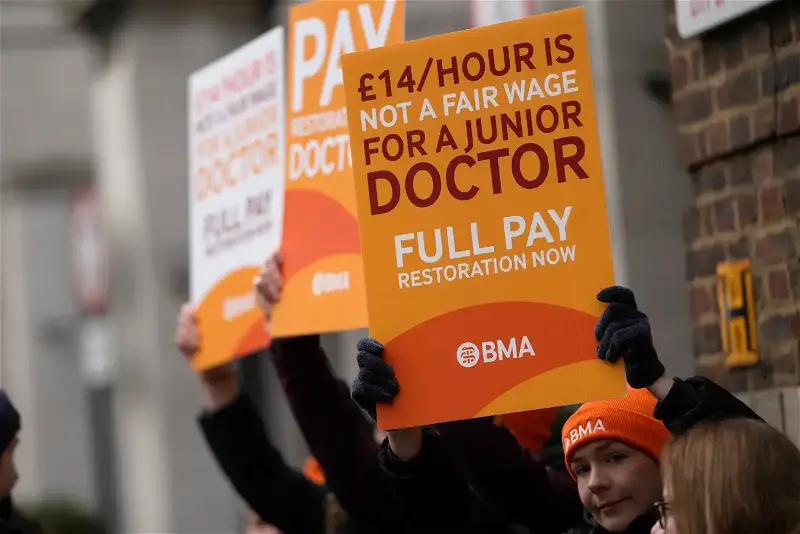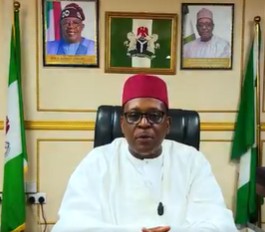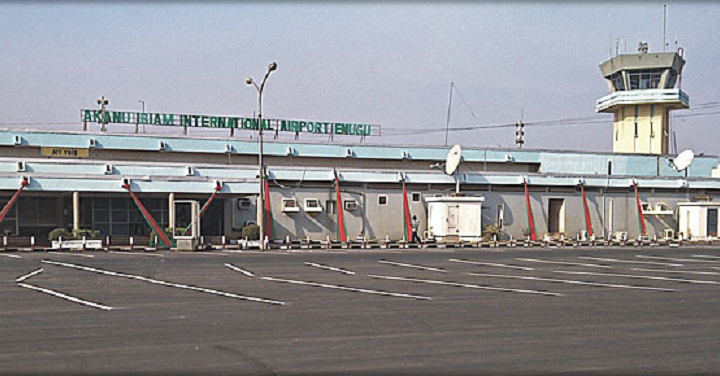Doctors in England hospitals hit out Wednesday at a perceived “brain drain” from the state-funded National Health Service (NHS), as they began their longest industrial action yet in a protracted pay battle.
Junior doctors, being those below specialist, consultant level, started joining picket lines from 0700 GMT, as part of an initial 72-hour walkout to be followed by a further six-day strike from January 3.
Join our WhatsApp ChannelThe total nine-day industrial action, a major escalation of their pay dispute, is targeted at pressuring health bosses and the government to offer a better deal by severely limiting services at the busiest time of year.
The doctors say they have been forced to maintain their industrial action, which began earlier this year, over a failure to address a host of issues, mostly related to years of below-inflation pay.
Various health workers, including consultants and nurses, have also held walkouts since last year, but deals have since been reached with many. The junior doctors remain holdouts, however.
“Many doctors are leaving the NHS in their thousands to go to Australia and New Zealand which is leaving rota gaps,” Sumi Manirajan, 29, a junior doctor on a picket line at University College London Hospital told AFP.
“This means that doctors are getting burnt out to make ends meet.”
Joseph Kendall, a psychiatry doctor also on the picket line, echoed the point, arguing “our social contract has been torn up” as pay issues prompt growing numbers of colleagues to work overseas.
“There’s a massive brain drain ongoing and with the massive amount of debt that’s incurred by doctors, there’s a real sense of abandonment by the country,” he added.
Britain has been hit by walkouts across various sectors over the last two years, as decades-high inflation and a cost-of-living crisis led staff in to demand pay rises to keep up with spiralling prices.
‘Pay cuts’
The latest junior doctors’ strike, which comes as the NHS faces increased pressure from seasonal respiratory illnesses, has drawn criticism from UK Prime Minister Rishi Sunak and hospital leaders.
The latter have described the lengthy walkout as their “worst fears realised”.
The British Medical Association (BMA) announced the strike earlier this month after a breakdown in long-running talks with the government.
The union said junior doctors have been offered a 3.0-percent rise on top of the average 8.8-percent increase they were given earlier this year.
It rejected the offer because the cash would be split unevenly across different doctor grades and would “still amount to pay cuts for many doctors”.
Health policy is a devolved matter for the administrations in Scotland, Wales and Northern Ireland, with the UK government overseeing England.
Junior doctors in Wales are due to walk out for 72 hours from January 15. Those in Northern Ireland are being balloted for potential strike action.
Their Scottish counterparts have struck a deal with the government in Edinburgh.
The NHS typically sees a rise in the number of people in hospital in the two weeks after Christmas due to people delaying seeking treatment in order to spend the festive season with loved ones.
NHS England’s national medical director Stephen Powis warned that the strike would cause “huge disruption” and “put the NHS on the back foot” as it enters its most pressurized time of year.
The service is already facing huge backlogs in waiting times for appointments and surgery, blamed on treatment postponement during COVID but also years of under-funding.



















Follow Us